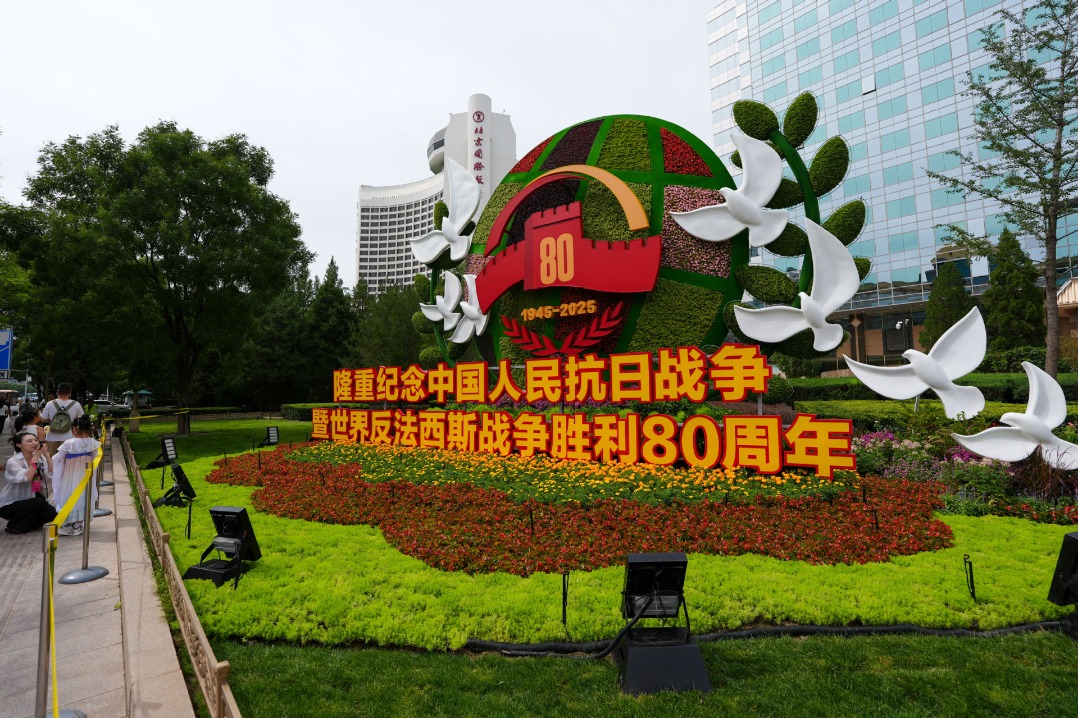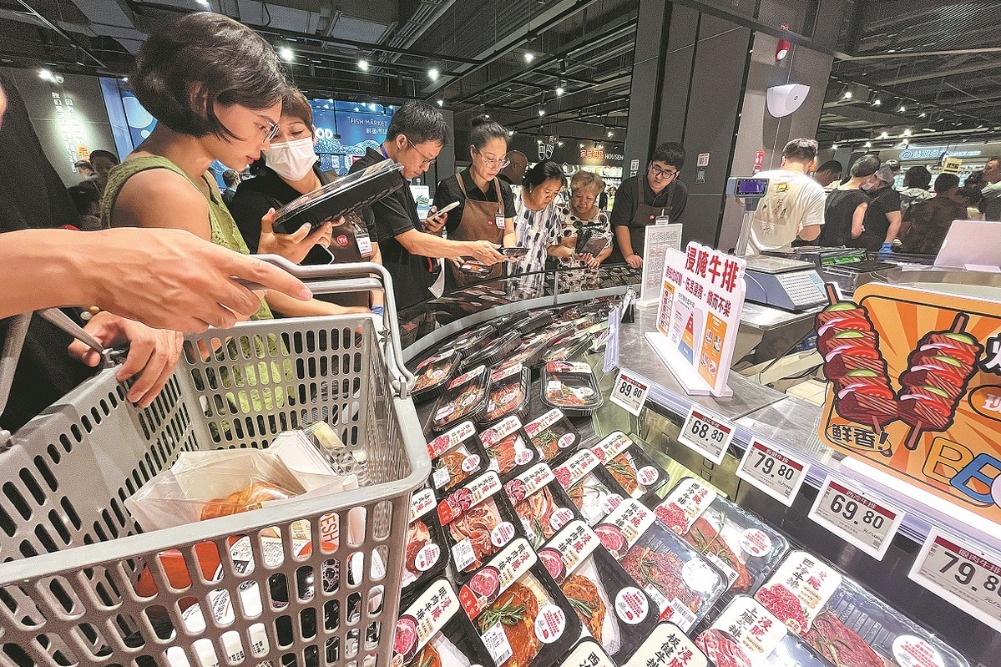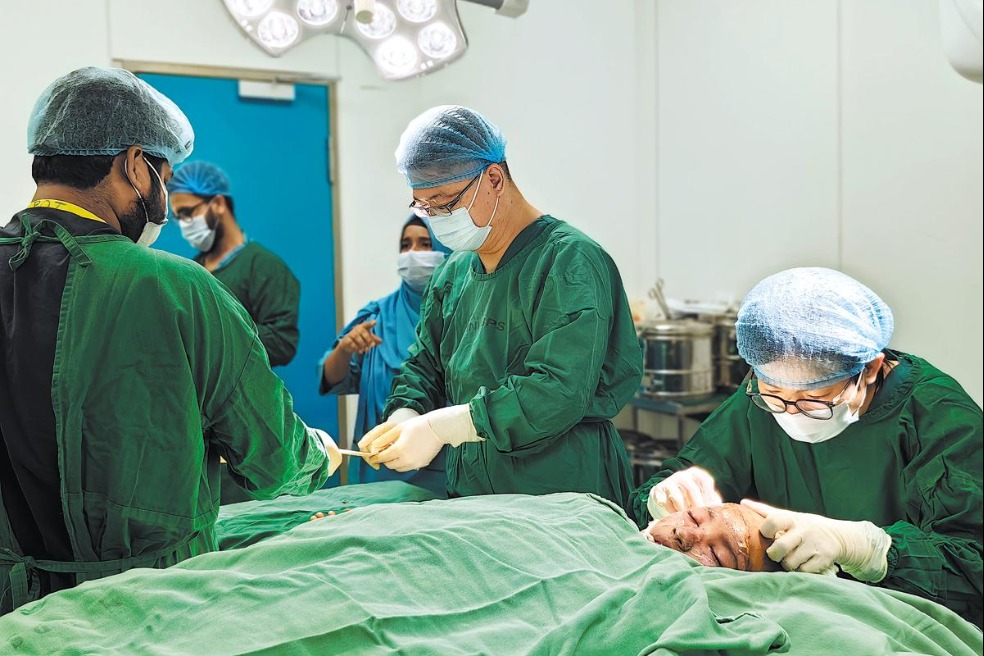Farmer no longer needs magnifying glass for rich harvest

HEFEI-Xu Congxiang, 69, a major grain grower in Taihe county, East China's Anhui province, reaped a record harvest this year, with the wheat yield on his demonstration farm exceeding 800 kilograms per mu (0.067 hectares). "In the 1970s, most of China's wheat yield per mu was under 300 kg and many families didn't have enough food and clothing. Now, as cultivation technology continues to improve, our grain output has multiplied," recalls Xu.
A few decades ago, when Xu was under 20 and had just graduated from high school, he returned to his hometown and became a farmer, embarking on his journey of exploring new ways to increase grain yield through science and technology.
Back then, a magnifying glass was Xu's best helper for field observation. Taking a magnifying glass and a notebook, Xu used to set off into the fields at dawn and stayed there until the moon rose.
"At that time, there was no advanced equipment, such as an insect monitor. We could only use a magnifying glass to observe the subtle changes in the crops. Some inconspicuous speckles on the leaves could be the signal of the output reduction," says Xu.
During those years, Xu accumulated many notebooks, which contained detailed information including the time and degree of wind and the growth status of crops.
"Especially in the wheat jointing stage, I will check the satellite cloud picture every day. Only with precise weather information can I get the upper hand in planting," says Xu.
With his rich experience and expertise, Xu summed up the methods in the green and efficient cultivation of wheat and promoted them to the surrounding farmers.
In 2010, Xu took the lead in establishing an agricultural planting cooperative. Of the 82 hectares of his cultivated land, 20 hectares were planned for experimentation and the rest was used for demonstration and promotion.
Under his influence, Xu's offspring followed his footsteps to work in agriculture and achieved further breakthroughs. His son Xu Jian helped him cultivate high-quality grain varieties in the demonstration field. In 2019, Xu Congxiang's grandson, Xu Xudong, also returned to the family's farmland.
Today, magnifying glasses are no longer necessary for Xu Xudong's field research. Instead, advanced equipment, such as automatic spore traps, an agricultural automatic monitoring and control system, and an insect monitoring system, do the job for him.
"With the help of these monitoring systems, we can observe soil moisture, insect distribution, and rainfall through mobile phone applications. We don't need to stay in the field all day to manually record such data," says Xu Xudong.
Apart from advanced technology, Xu's family also focuses on developing high-quality varieties and exploring high-yield cultivation techniques.
On the table in Xu's cooperative are over a thousand carefully marked paper bags, inside of which are wheat samples of different varieties collected from the experimental field this year.
"Since the beginning of this year, a total of 50 new grain varieties have been planted in the experimental field, and seven experiments have been conducted, including one to increase the efficiency of new wheat fertilizers," says Xu Xudong.
Over the past 10 years, Xu Congxiang has independently developed four soybean varieties and two wheat varieties with intellectual property rights.
"Previously, it took about 10 years to cultivate a new grain variety. Now, I cooperate with scientific research institutes to cultivate new varieties and experiment with improved planting patterns in the field. Fine varieties and improved planting techniques have helped us achieve high yield," says Xu Congxiang.
In his opinion, China's grain planting technology and skills have changed tremendously over the past decades. "Only through applying science, technology and machinery to agriculture, and constantly improving grain output and quality, can the income of farmers be improved and national food security ensured," he says.
"Modern agricultural science and technology should be applied to help modern farmers increase yield, and this requires continuous effort from one generation to another," says Xu Congxiang.
Xinhua
Today's Top News
- China, India should jointly maintain peace in border areas, Defense Ministry says
- Beijing to host high-level global security conference in September
- 26 foreign leaders to attend China's V-Day commemorations
- Artificial intelligence can power Xizang's leap into a better future
- Export of trade in services a priority
- SCO helping develop a multipolar world order






























